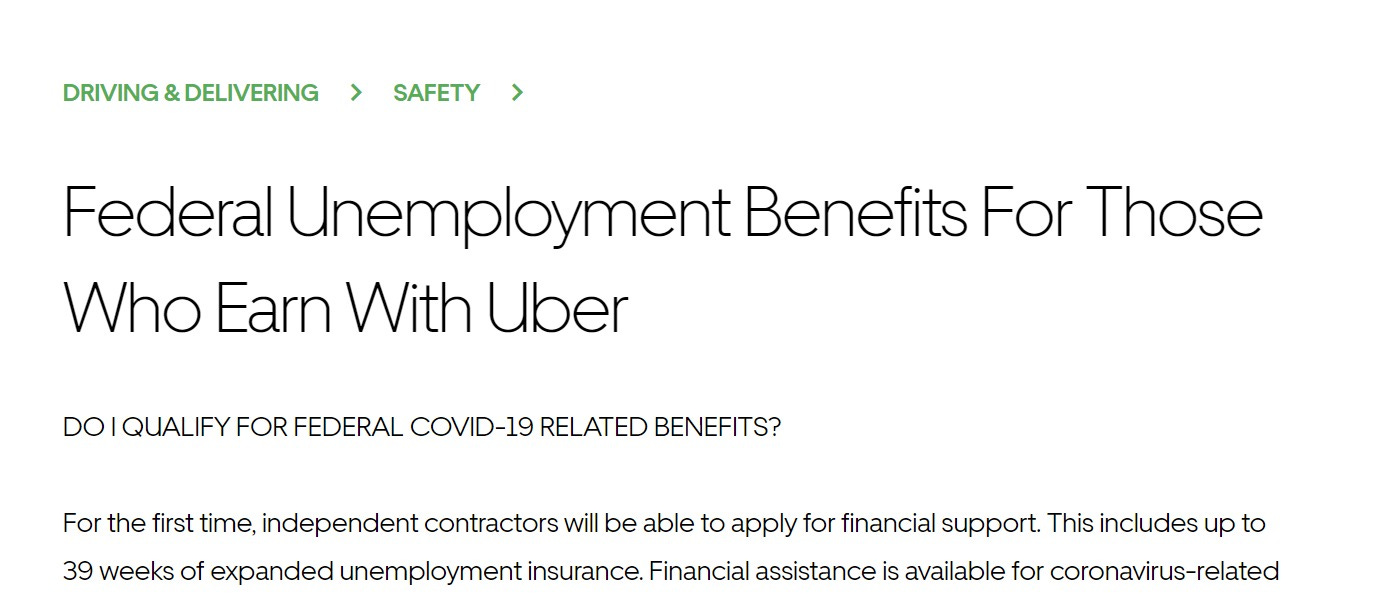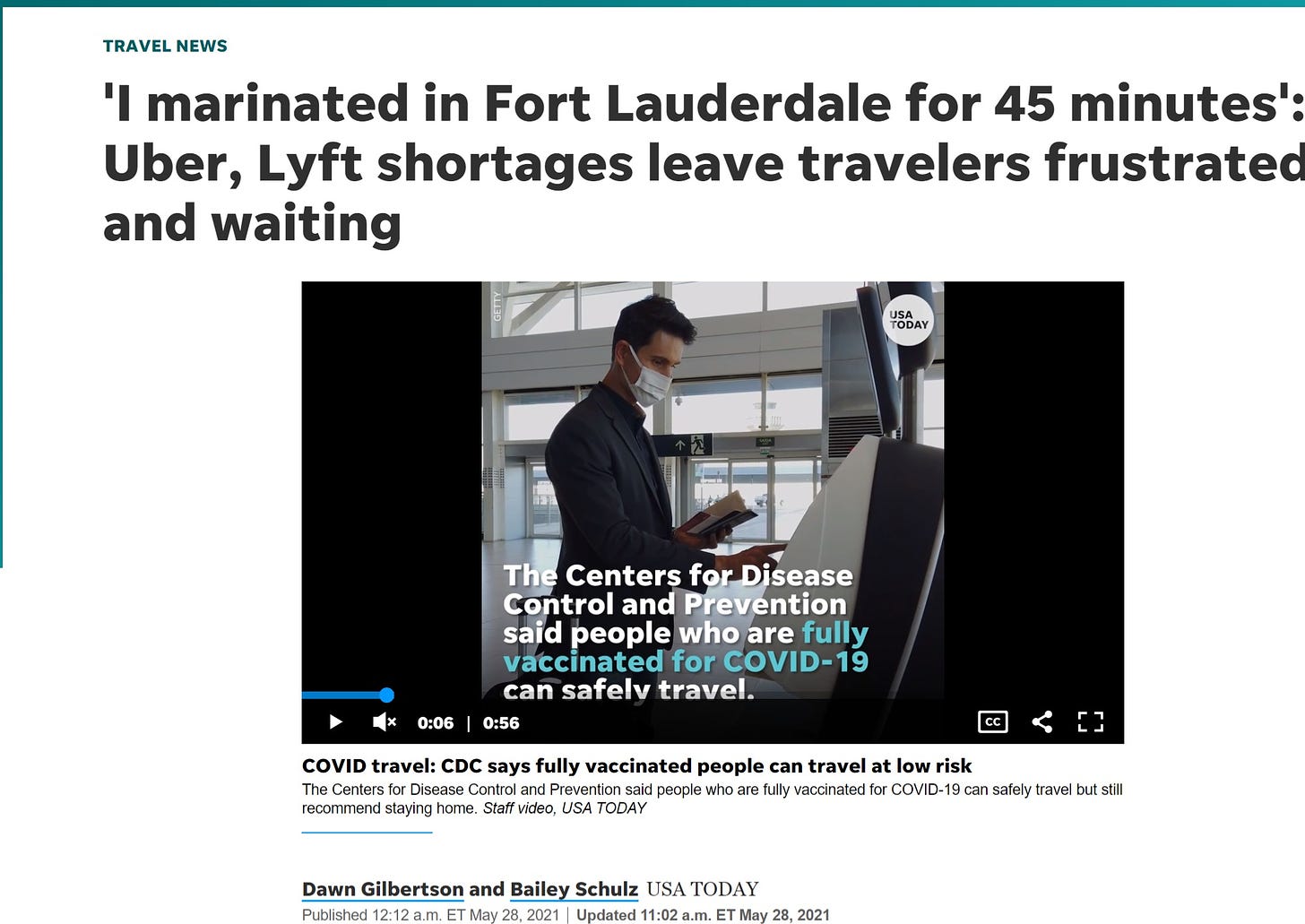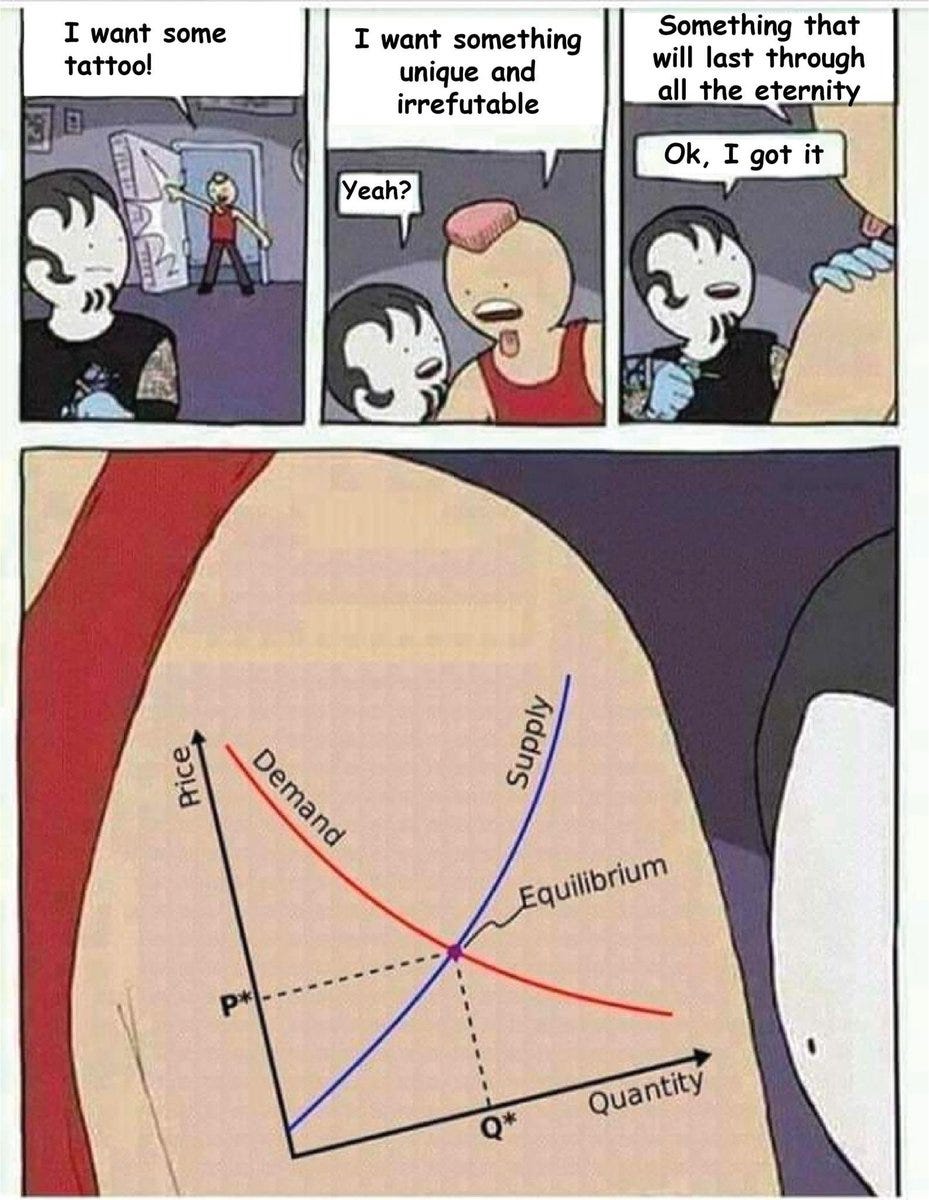many have noticed that you simply cannot get an uber these days. trying to get home from viejo san juan the other night, there were simply none. you could not get a car at any price. the system was just empty. no taxis either. it took an hour to get a car and when it came, it was at 400% surge pricing. a $10 ride was $50 and we were, by that point, glad to pay it.
what i was NOT glad about is that it’s my tax dollars (and yours) that are being used to buy this shortage. it’s not that there are no workers, it’s that workers are choosing not to work because it pays more to stay home.
economists call this the “reserve price of labor” (RPL). it’s the price at which you become willing to work. if you have no safety net and need to put food on the table, this price will be lower. if you get $800 a week to do nothing, it will be higher, perhaps much higher than $800 because if you get $800 for nothing and $1000 for working 40 hours, that’s only $5/hr incremental for doing the work.
so high welfare payments cascade into the economy and labor pool at rates considerably higher than their face value. if zero work is $800, to work 40 hours you might want $1200 or $1400.
and this is why payrolls keep missing despite such high unemployment and so much labor force slack. we’re literally using taxpayer dollars to prevent employment and the multiplier effect from these programs is significant.
uber is a wonderful test case here because self-employed people such as uber drivers have not, in the past, been eligible for such benefits or, if they were, only for greatly reduced ones. this is a new factor in that ecosystem. and it’s playing havok in a way that we have not seen in the past.
so now we get this:
from the article:
“Danielle DiMartino Booth flew into Fort Lauderdale, Florida, in early May and ordered a ride from Lyft as soon as she landed.
The response: no drivers found. The Dallas executive, CEO of an investment research firm, kept hitting the Lyft app in search of a driver. No response. She started commiserating with a large group of fellow travelers in the steamy rideshare pick up area at the south Florida airport.
"We were all crowded in there, grumbling, mumbling, telling each other our stories: 'How long have you been waiting? How long have you been waiting?' ''
"The reliability and low prices that travelers are used to paying when it comes to Uber and Lyft are not going to be here this summer,'' said Harry Campbell, a former engineer and rideshare driver who founded The Rideshare Guy blog.
oopsie.
this is, of course, exactly what the economic theory predicted. campbell, who seems to grok this quite clearly, also makes the following prediction:
Campbell said another factor that may be keeping some drivers home: supplemental unemployment benefits added during the pandemic. The bigger payments are starting to end in some states and when that happens he predicts "people will get back to driving.''
i agree 100%. this is a simple, testable hypothesis. so make a mental note and pay attention to the places where this happens. i’ll wager you’re going to see this play out just as the theory predicts.
this will validate one simple thing: we’re literally paying tax dollars to make getting a ride more difficult and more expensive.
you’re paying to inconvenience yourself and stop the economy from adapting and recovering as it should.
uber is a wonderful canary in the economic coal mine. how it works where you live is a quite precise measure of how good or stupid your government is around business.
if uber hums along, rides are plentiful at all times and adaptive to demand, and prices are reasonable, you likely have pretty decent government.
when it fails on pricing or adaptation, you have stupid labor laws.
when it does not exist at all, you have cartels and licensing monopolies.
it’s a surprisingly good barometer and indicator of market interference.









Probably. But I'd like to think that maybe the drivers just got tired of wearing the mask.
A fundamental principle of economics is that “people respond to incentives”. If you pay people not to work, many won’t work. Unfortunately, progressives seem not to understand this. They evidently live in a fantasy world where incentives don’t matter and all elasticities are zero.